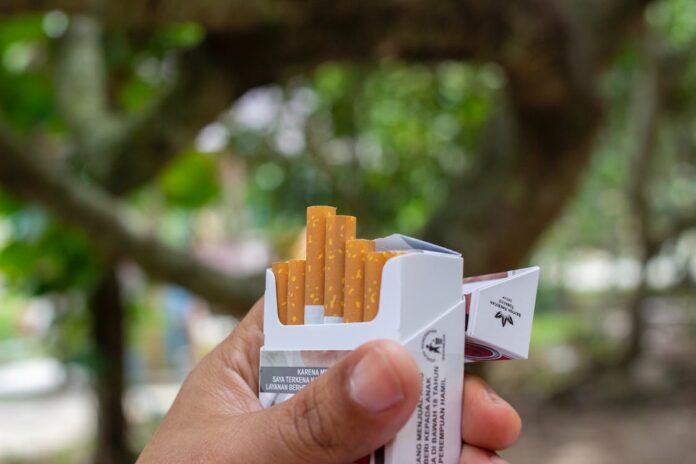
By
After causing decades of harm to the Black community, menthol cigarettes may be coming off shelves for good. The United States Food and Drug Administration (FDA) recently moved forward with its proposal to ban the products. The agency sent its rules to the White House for final review last month, the last regulatory step before official rules are issued.
Yolonda C. Richardson, president and CEO of Campaign for Tobacco-Free Kids, says the ban represents “truly historic action to drive down tobacco use — the number one cause of preventable death in the United States.”
“Once implemented, [the rules] will protect kids from tobacco addiction, advance health equity and save hundreds of thousands of lives, especially Black lives,” she said in a statement.
The Deadly Effect of Menthols
Cigarette smoking kills nearly half a million Americans each year, including people who die from second-hand smoke. Menthol cigarettes are to blame for most of the lives lost. Between 1980 and 2018, the mint-flavored cigarettes killed approximately 377,528 people. Black smokers made up 41% of those deaths, despite representing only 13.6% of the U.S. population, according to a 2021 study by the University of Michigan.
“Our results show that menthol cigarettes disproportionately harmed African Americans significantly over the last 38 years and are responsible for exacerbating health disparities among that population,” the authors wrote. “Removing menthol cigarettes from the market would benefit the overall U.S. population but, particularly, the African American community.”
Tobacco use continues to exacerbate rates of heart disease, cancer, and stroke among Black adults — three leading causes of death in the community. Despite starting to smoke later in life, Black folks are more likely than other groups to die from such smoking-related diseases.
If a ban were to go into effect, researchers say 255,895 Black lives — or four million “life years” — could be saved over four decades.
Big Tobacco Targeted Black Smokers
Black adults are heavily impacted by the negative effects of menthol cigarettes because they represent a bulk of its consumers. Nearly 85% of Black smokers use menthols, compared to 30% of white smokers.
Black smokers are often associated with products such as Newports, Kools, Camels — but this hasn’t always been the case.
In the 1950s, fewer than 10% of Black smokers used menthols. One to two decades later, tobacco companies launched aggressive marketing campaigns targeting Black folks. They advertised in Black magazines and newspapers and hosted jazz concerts in cities like Memphis, New Orleans, and Detroit.
The effects can be seen in lung cancer disparities between Black Americans and other racial and ethnic groups, experts say. Black men, who hold the highest death rate, are 14% more likely than white men to die from the disease.
An analysis by the Institute for Health Metrics and Evaluation and the Council on Foreign Relations notes that a menthol ban would close any existing gap by 2025 — but only if it happens sooner than later.
“Without that ban, the gap between lung cancer death rates for non-Hispanic Black Americans and other U.S. racial and ethnic groups are not projected to close until 2050,” the Council on Foreign Relations wrote.
Rep. Robin Kelly (D-IL), who serves as chair of the Congressional Black Caucus Health Braintrust, says “for too long, tobacco companies have been enabled to promote menthol cigarettes to the Black community.”
She and other members of the CBC endorsed support for the ban in an open letter to the FDA in July.
“We are pleased this administration has taken this critically important step to put an end to the tobacco industry’s targeted efforts to lure youth and Black Americans into a lifetime of deadly addiction.”

